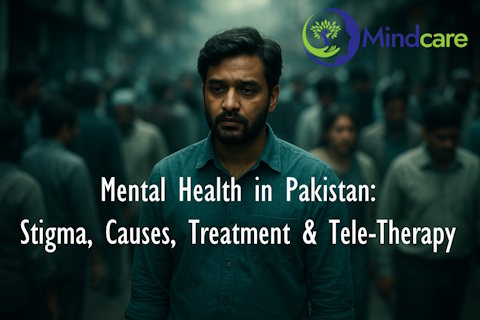Mental Health Challenges of Pakistanis Living Abroad: Coping with Long-Term Family Separation
Introduction
Moving abroad for work, study, or other opportunities can be exciting and rewarding. However, for many Pakistanis, extended periods away from family and familiar surroundings bring unique mental health challenges. Feelings of homesickness, loneliness, and cultural disconnection are common. Understanding these challenges and adopting strategies to cope is crucial for maintaining emotional and psychological well-being.
Common Emotional Challenges
Being away from family for long durations can create a range of emotional difficulties:
1. Loneliness and Social Isolation
Being separated from loved ones can cause intense loneliness. Many Pakistanis find themselves missing daily family interactions, casual conversations, and cultural traditions. Social isolation can lead to sadness, low motivation, and even depression if not addressed.
2. Homesickness and Nostalgia
Homesickness is natural, but prolonged longing for home can become overwhelming. Holidays, family events, or significant life milestones spent abroad may intensify these feelings. Nostalgia for home culture, cuisine, and community can amplify emotional distress.
3. Anxiety and Stress
Living abroad often involves managing unfamiliar systems, work pressures, and financial responsibilities. Combined with missing family, these stressors can trigger anxiety, sleep disturbances, and physical tension. The constant worry about family back home may also exacerbate stress levels.
4. Identity and Cultural Conflicts
Adapting to a new culture can create identity conflicts. Navigating social norms, language barriers, and cultural expectations can leave some feeling disconnected from both their host country and their Pakistani roots. This can lead to self-doubt, insecurity, and internal conflict.
5. Guilt and Pressure
Many Pakistanis living abroad feel pressure to succeed, often to support their families financially. This sense of responsibility can lead to guilt and self-blame if one feels they are not doing enough. Balancing personal goals with family expectations can cause stress and emotional strain.
Physical Health Impacts
Mental health challenges often manifest physically. Stress, anxiety, and loneliness can lead to sleep disturbances, headaches, digestive issues, and fatigue. Maintaining a healthy lifestyle abroad is essential to support both physical and emotional well-being.
Practical Coping Strategies
Here are several strategies that can help Pakistanis living abroad manage long-term separation from family:
- Regular Communication: Use video calls, messaging apps, and social media to stay in touch with loved ones. Setting up regular "family time" helps reduce feelings of disconnection.
- Create a Support Network: Connect with local Pakistani communities, expat groups, or mental health support networks abroad. Building friendships in your host country provides emotional support and reduces isolation.
- Maintain Cultural Practices: Celebrate cultural festivals, cook traditional meals, and observe family traditions. This helps retain a sense of identity and connection to home.
- Develop a Routine: A consistent daily routine including work, exercise, and leisure activities can reduce stress and maintain structure.
- Physical Activity: Regular exercise such as jogging, yoga, or sports reduces stress hormones and improves mood.
- Mindfulness and Relaxation: Meditation, deep breathing, and journaling help manage anxiety and build resilience.
- Professional Help: If stress, anxiety, or depression persists, seek help from licensed therapists. MindCare offers services for Depression Therapy, Stress Management Therapy, and Anxiety Therapy tailored for Pakistanis abroad.
Technology Tools for Mental Health Support
Using technology wisely can help combat isolation and homesickness. Apps for meditation, journaling, and connecting with mental health professionals are effective tools. Online communities and social groups also provide a sense of belonging.
Challenges Specific to Pakistani Expats
Pakistanis abroad face unique stressors such as societal expectations, extended family obligations, and pressure to remit earnings. Cultural stigma around mental health can also prevent many from seeking professional support, leading to prolonged distress. Recognizing these challenges is the first step toward seeking help and building resilience.
When to Seek Professional Help
Persistent feelings of sadness, anxiety, sleep problems, or lack of motivation are signs to consult a mental health professional. Early intervention reduces long-term effects and improves overall life quality. Services like Child & Adolescent Therapy may also benefit younger adults or students living abroad.
Conclusion
Living abroad away from family for long periods can be challenging for mental health, especially for Pakistanis dealing with cultural, social, and emotional pressures. Acknowledging these struggles, building supportive networks, maintaining cultural ties, and seeking professional guidance can help navigate the emotional journey. MindCare provides confidential, paid therapy sessions tailored for individuals living abroad — helping you manage anxiety, stress, and depression while maintaining your connection to home.




